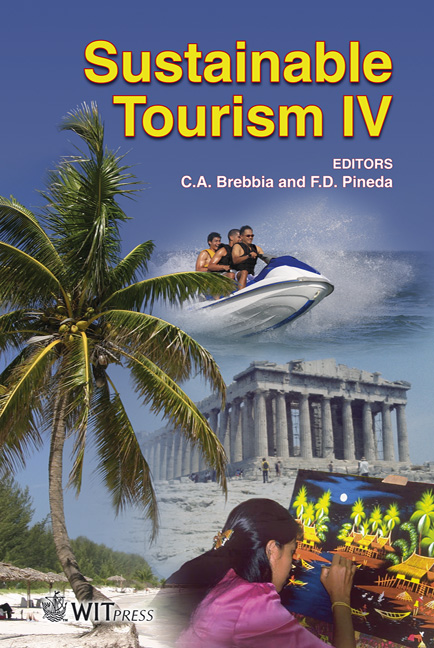Sustainable Tourism Development In The Masai Mara National Reserve, Kenya, East Africa
Price
Free (open access)
Transaction
Volume
139
Pages
12
Page Range
319 - 330
Published
2010
Size
3,308 kb
Paper DOI
10.2495/ST100281
Copyright
WIT Press
Author(s)
J. Onchwati, H. Sommerville & N. Brockway
Abstract
The Masai Mara Game Reserve is Kenya’s finest wildlife reserve, one of the world’s top tourist attractions and vital to Kenya’s economy. Recently, concerns have been expressed about the sustainability of tourism given the threats of depletion of indigenous animals, degradation of the landscape and impact on the native Masai Mara tribespeople. The challenge now is to create a sustainable situation that protects the interests of all stakeholders. This paper explores the views of four key stakeholder groups: the Masai people; conservationists including the Kenya Wildlife Service and the Masai Mara Game Reserve management; local tourism and game lodge operators; and government departments. Interviews were carried out with representatives of each stakeholder group to gain insight into their needs from tourism and whether these needs are currently met; suggestions for short- and long-term tourism developments; and the economic implications of tourism in the Masai Mara. Interview data were supplemented by an extensive period of observation. The findings indicate that the growth of tourism and the lack of resources to manage tourism are leading to persistent tensions between stakeholders and presenting long-term threats to the tourism industry. Overpopulation, changes in land use, poaching, deforestation, land degradation, conflicts due to unequal sharing of revenue, poor infrastructure and insecurity all contribute to these tensions. All stakeholders agreed that urgent action is required and lessons must be learned in order to sustain tourism and ensure the Masai Mara is preserved for future generations. Keywords: Masai Mara, stakeholder views, sustainable tourism, tourism development, tourism impact.
Keywords
Masai Mara, stakeholder views, sustainable tourism, tourism development, tourism impact





